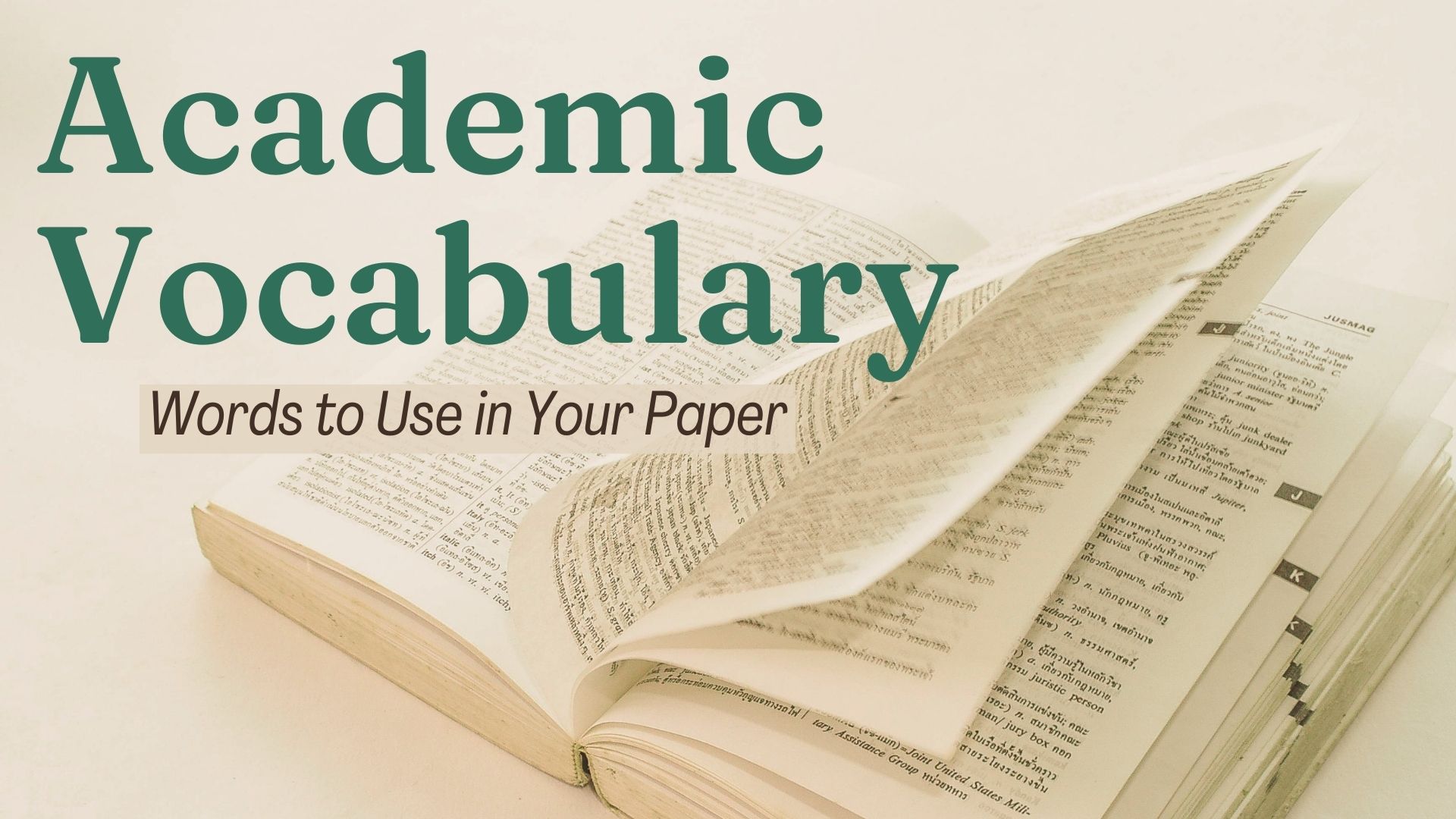Vocabulary, as a whole, is known as a collection of words that can be used in a similar context or not. English vocabulary is one of the most difficult aspects to tackle in English especially for second language speakers or learners. Based on where the language is to be used, there are different types of vocabulary that a person may need to know.
One of such types is the academic vocabulary. What is academic vocabulary, its types, uses, examples, and how it is taught? We would look into all that pertains to academic vocabulary as we go on.
What Is Academic Vocabulary?
Academic words help build the students’ knowledge of a particular subject or domain. It gives the necessary skills to digest and reproduce the knowledge they have. Academic vocabulary words are used in spoken and written contexts. In teaching academic vocabulary, there are academic writing words and spoken words. Other than this broad classification, academic vocabulary consists of two major types.
Types Of Academic Vocabulary
Academic vocabulary can be divided into two types. They are:
- General Academic Vocabulary
General academic vocabulary consists of words that are commonly used in the academic context. While some are more general than others, some general academic words set the tone of the writing or speech to show it is formal or academic writing. For instance, in a phrase like ‘the aim of this report is to…’ the words, aim, and report are general academic words. While the other words in the phrase like this, the, and to are just more general words used in an academic context. Words used in academic contexts to link other words are known as academic transition words. These words are more general than others.
There are also words in the general vocabulary that have a general meaning and another meaning in academic use. Words like discipline. This word means generally to train people to obey but in academic use, it means a subject of study. Another word in this category is the word, control. In general, the word means power over something or somebody but in academic use, it might mean the group used in an experiment to test results. The meaning and use of the words in the general vocabulary list must be considered before they are understood in the academic context. For words on the general academic vocabulary list, academic vocabulary in use is different from its general meaning or use.
- Technical Academic Vocabulary
These words are essential academic vocabulary. These words are peculiar to a particular field and will only be understood in their context. There are various subject-specific academic vocabulary lists. For example, inertia (used in physics), photosynthesis (used in biology), externalities (used in economics).
In this type, there are certain words with more than one meaning depending on the subject in which the word is used. For example, the word class in general academic use is students taught together. In biology, it is a taxonomic group with one or more orders.
Over time, teachers of languages especially the English language have complied lists of words used in academic context by levels of grade. Students can learn academic vocabulary by grade level. They can use a daily academic vocabulary online to learn more about these words.
Academic Vocabulary Lists
In a bid to help students learn the words in an academic context, various resources have been provided by teachers. Most of these resources are vocabulary lists that students can visit to update their knowledge of these words. Some of these resources provide the meaning and usage of the words in context while in others, you will have to find that out on your own.
Note that these lists are by no means complete, you will have to do personal deeper research to proclaim a sound knowledge of academic vocabulary.
One of the popular compilations is the Academic Word List (AWL). You can use this resource to build your academic vocabulary for the written context. The AWL Highlighter will also help you study the definitions, pronunciation, sentence examples of the words and the appropriate usage of the words in context.
The New Academic Word List (NAWL) is a similar, updated list which can also be used. For Academic English, you can use lists like the Academic Collocation List (ACL) and the Academic Formulas List (AFL). The ACL consists of collocations used in written contexts in English academic texts. AFL consists of formulaic sequences that can be used in English academic writings.
There are also special academic lists created for various courses of study. Users can use them to learn words related to their field. The Economics Academic Word List (EAWL) is one such list and it also has an EAWL Highlighter that can be used to understand the words.
Examples Of Academic Vocabulary By Grade Level
An academic vocabulary list by grade level can be used to teach students at different levels of technical and general words that they can use to excel in academic contexts whether in writing or speech. There are various examples of academic vocabulary on each level. This is very basic, but it might give you a better idea of what to expect if you are, for example, working on English dissertation writing. You can also use some of the examples below to gauge the level at which your students need to start expanding their knowledge of academic words. To be on the safe side, you can consult professional writers, who will answer all the questions you may have.
- Grade 1: odd, minus, equal, noun, city
- Grade 2: fiction, prey, behavior, pound, graph
- Grade 3: agriculture, economy, perimeter, glossary, multiple
- Grade 4: bay, preface, sediment, evidence, stationary
- Grade 5: compromise, religion, slavery, conjunction, onomatopoeia
- Grade 6: appositive, propaganda, membrane, mutualism, niche
- Grade 7: patterns, density, temperature, maneuver, immigration
- Grade 8: elaboration, techniques, dependency, examination, hygiene
- Grade 9: conservation, allegory, implicit, democracy, campaigning
- Grade 10-12: naturalization, jurisdiction, synthetic, aesthetic, ballad
Academic vocabulary is important to learning especially when learning any language as a second language. Second language users of English have adequate resources to make learning academic words in English easy. Based on your grade level, you can dive into the meaning and use of words in an academic context.
Need Help Writing Your Thesis?
You might still feel your knowledge of English academic vocabulary is not up to standards. That is totally fine! You might feel that your papers or thesis need to sound smarter and more academic. Well, there is always our custom thesis writing service that provides high quality expert help. Any teacher or professor will absolutely love our work, and most of all it is all very secure. We uphold security and privacy standards at the highest standard. Enjoy a stress free academic life while our writers work on your thesis.





